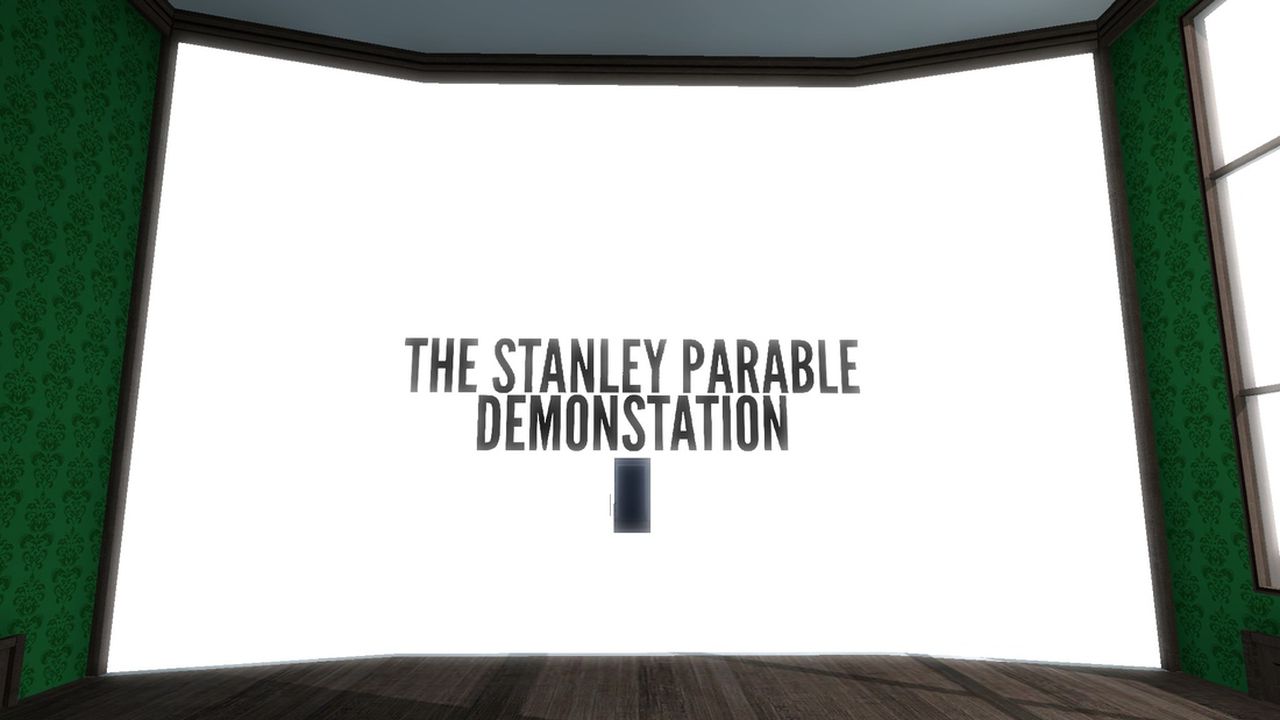 |
| You're almost about to play the demo |
The demo that was not a demo but rather a gathering of
thoughts that seemed coherent but weren't really coherent but placed in a way
to make sense of nothing much at all to begin with. This to me sums up how I
felt about playing the Stanley Parable demo. Can this even be called a demo?
can it even be called a game to begin with? What is a game? These are the kinds
of questions that I ask myself after playing this game. Its breaking of the
fourth wall is an experience that puts the player right into the front seat. The
game is very aware of the player and it's this awareness that carries this
experience, if this is a precursor to the actual game it would do the game
justice of encourages players to purchase the retail version to see where the
game wants to take you or accuse you of next.
 |
| I did not press this button for 10 minutes |
The way the game speaks to the
player it feels alive and yet very responsive to what the player is doing on
screen, through all the dialogue it never felt to repetitive to the point where
the narrator became annoying or overbearing he had the right mix of witty
banter mixed in with direction to control the pacing of the game. It starts
with the promise of a demo, and continually promises the player of this grandiose
demo that's only just around the corner. It's a demo that's built upon the hype
factor and trying to encourage the player to do strange things. Due to the way
the game is setup I felt the need to constantly rebel against what the narrator
was asking me to do, one of the first instances that this happens is the first
time you walk into the screen room and it asks you to stay as still as possible
for 20 minutes. I moved straight away and it triggered the next event. Another
moment in the demo I felt carried weight was the first moment the player is
presented with the yes or no answer for if they would purchase the full game,
as the player approaches the platform his movement speed is slowed, its gives
the player the feeling of physical weight to whether or not they would purchase
it. It also likes to mention a lot that the decision to purchase the game
should not be taken lately and should be an exciting prospect for the player.
The game purposely tries to use reverse psychology on the player to be able to
achieve a intriguing level of engagement. There are many scientific case
studies where children are given a choice of eating the marshmallow now or wait
for another 20 minutes and they would receive another marshmallow, it's the
promise of more that some children will wait where others will not. This to me
is exactly what the Stanley parable demo is. It is exactly as to what a demo
should always be for any video game the promise of more.
Image References
https://cdn2.vox-cdn.com/thumbor/6d2eY16-GURgHTFl2ZgZkDz0Tt8=/0x72:1100x691/1280x720/cdn0.vox-cdn.com/uploads/chorus_image/image/20945843/2013-10-09_00005.0.jpg
https://i.ytimg.com/vi/eIELkO7zSZw/maxresdefault.jpg
No comments:
Post a Comment